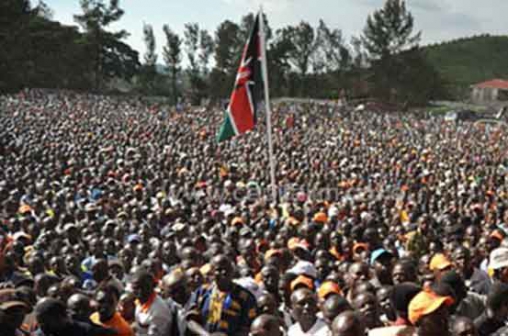×
The Standard e-Paper
Smart Minds Choose Us

Political Parties are allowed to spend up to Sh15 billion in campaigns for next year’s elections, in a new bid to control high spenders who deploy wealth to tilt the playing field.
In limits on election campaign financing published yesterday by the Independent Electoral and Boundaries Commission (IEBC), candidates for President should not spend more than Sh5.2 billion.